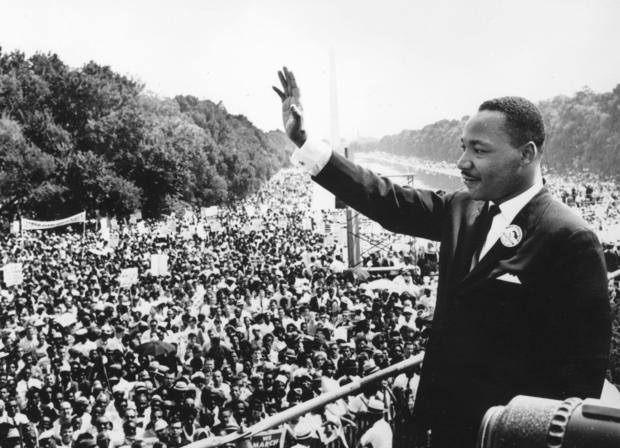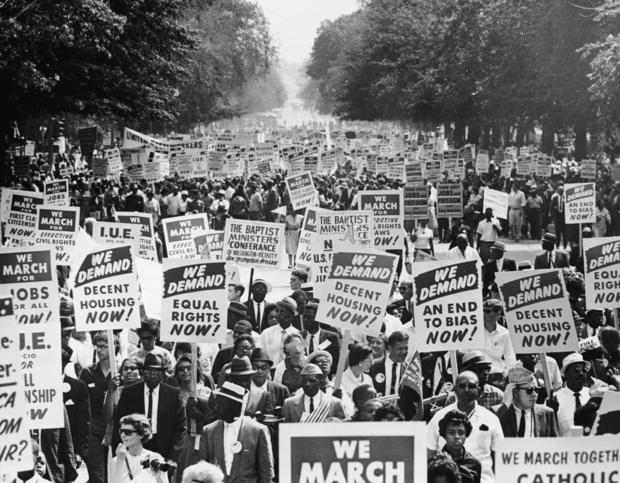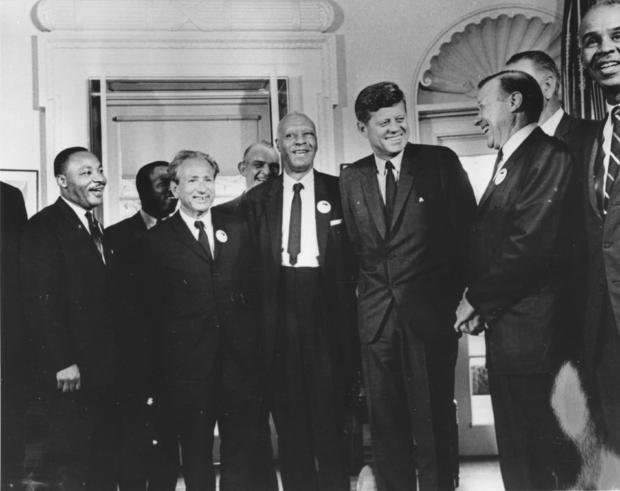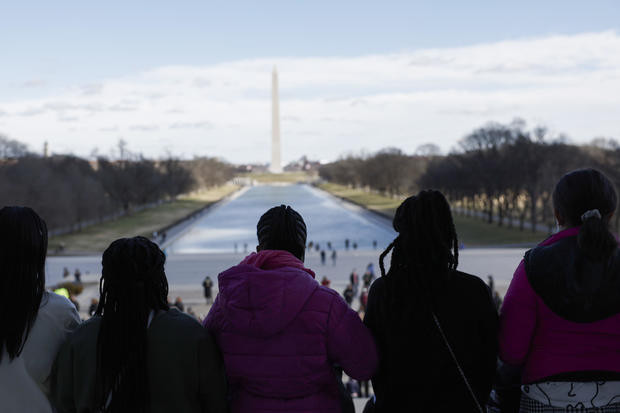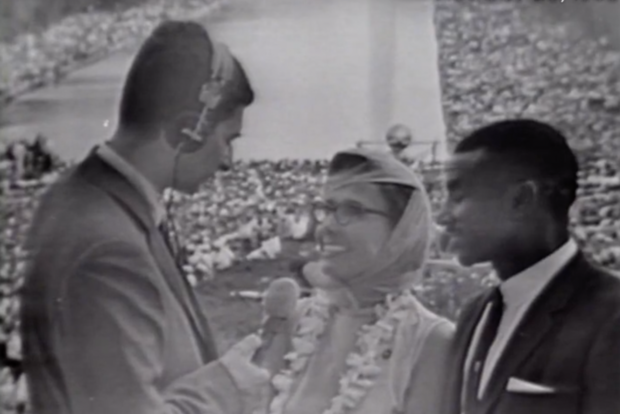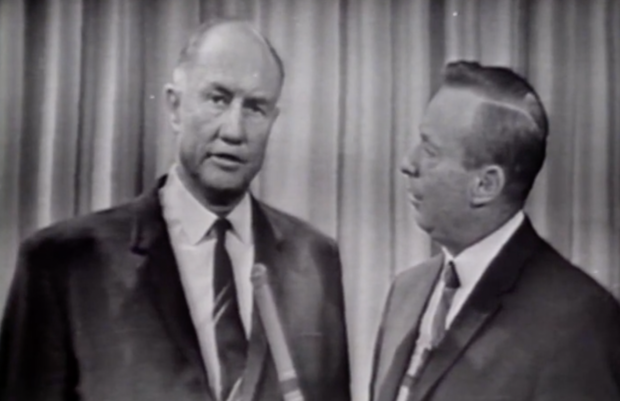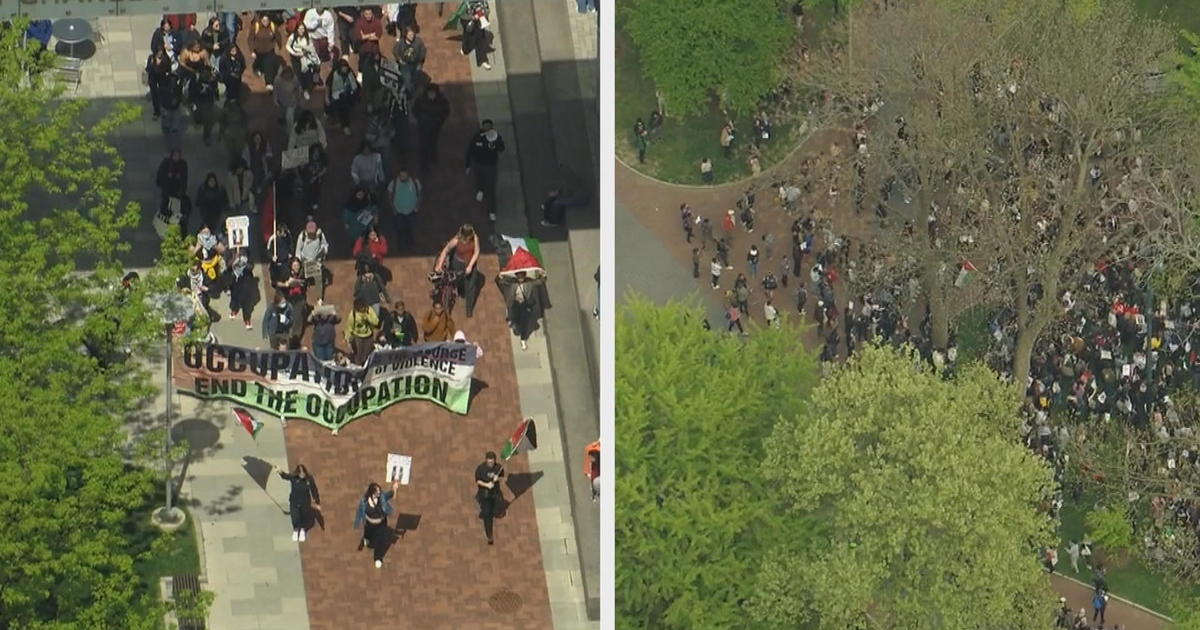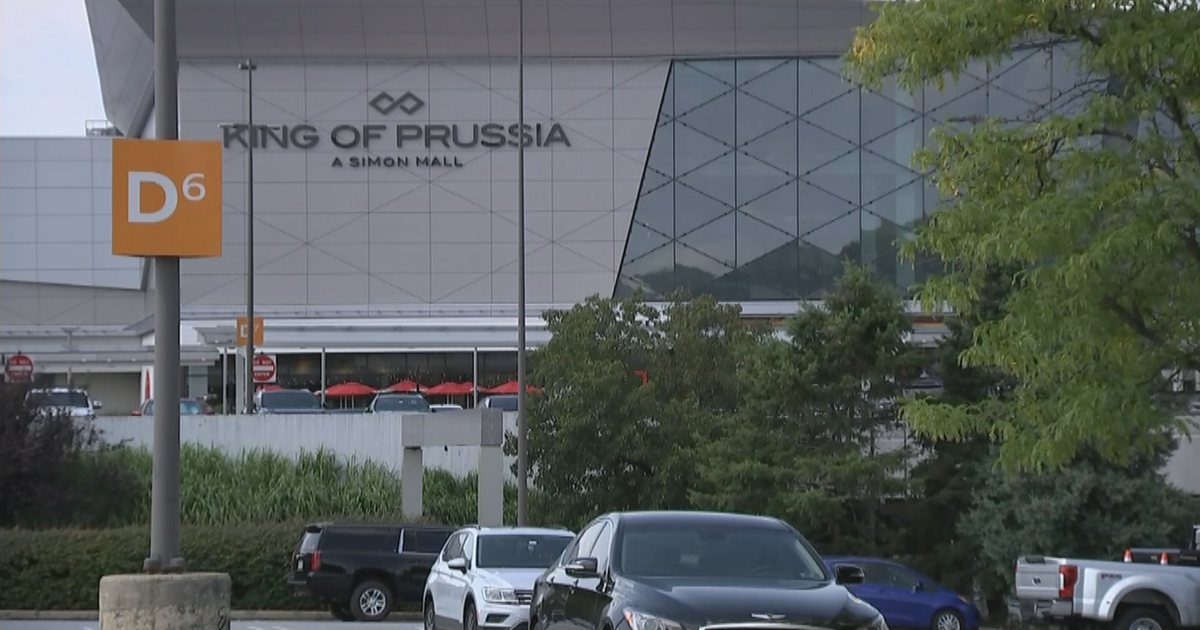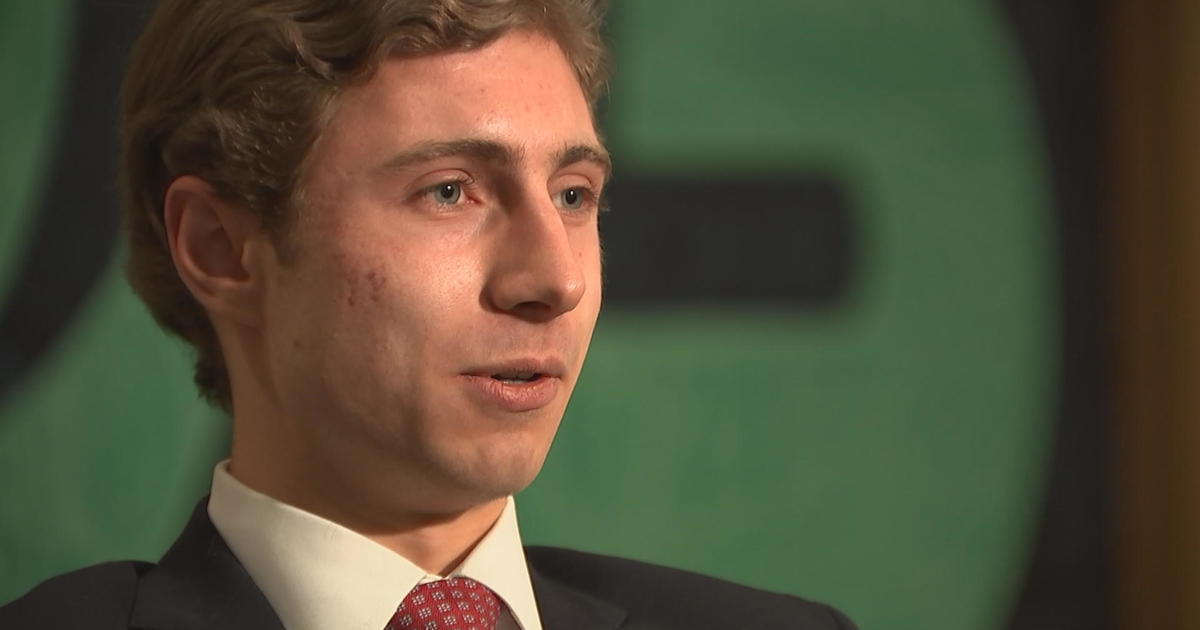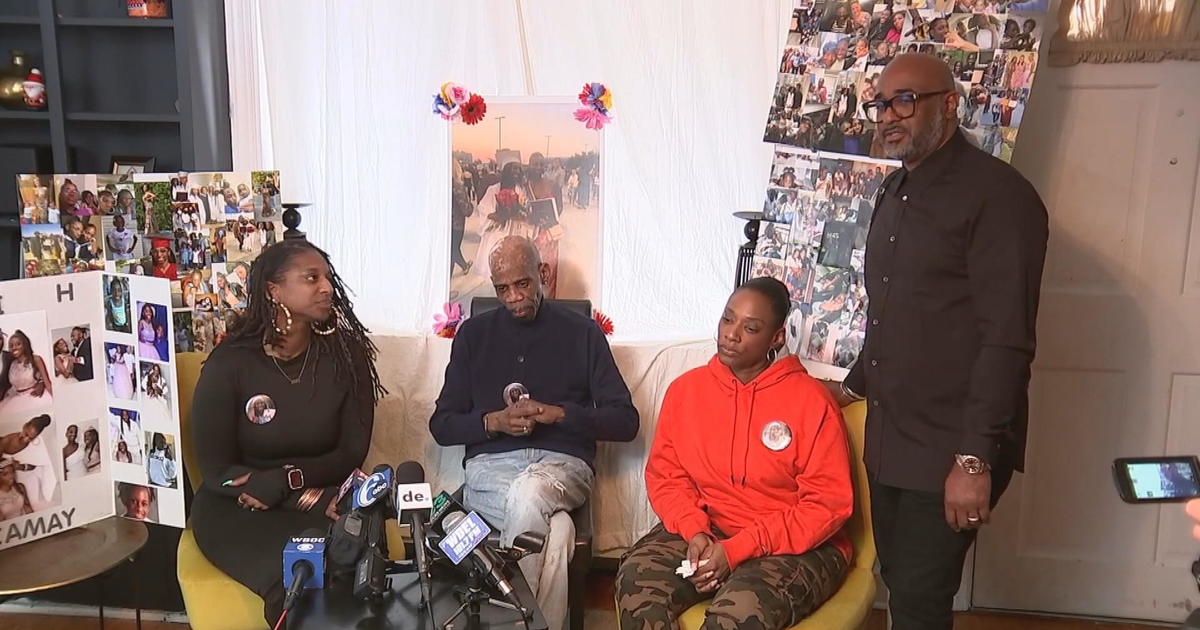On the March on Washington's 60th anniversary, watch how CBS News covered the Civil Rights protest in 1963
On Aug. 28, 1963, Walter Cronkite began his evening news broadcast with a vivid description of the March on Washington. The day would come to be a watershed moment in the equal rights movement for Black Americans.
"They called it the March on Washington for Jobs and Freedom," said Cronkite. "They came from all over America. Negroes and Whites, housewives and Hollywood stars, senators and a few beatniks, clergymen and probably a few Communists. More than 200,000 of them came to Washington this morning in a kind of climax to a historic spring and summer in the struggle for equal rights."
One of those clergymen was the Rev. Martin Luther King Jr., who made his famed "I Have A Dream" speech on the steps of the Lincoln Memorial on the afternoon of Aug. 28. He spoke for 16 minutes in a rallying cry for all to have equal rights.
What was the March on Washington?
The March on Washington for Freedom and Jobs was meant to support the Civil Rights Act, which President John F. Kennedy was attempting to pass through Congress. The act called for an expanded Civil Rights Commission, the desegregation of public schools and other locations and voting rights protections for Black Americans.
On the day of the march, more than 250,000 people walked from the Washington Monument to the Lincoln Memorial. Cronkite remarked that the march sometimes looked "more like a parade of signs than of people," as marchers carried signs calling for equality and the end of police brutality.
Along the parade route was CBS News correspondent Dave Dugan. He called the enthusiasm of the march "contagious," with older attendees "taking it rather relaxed and calmly" and younger marchers singing freedom songs like "We Shall Overcome," bubbling with energy and "exuberance."
The Civil Rights Act was signed into law by President Lyndon B. Johnson on July 2, 1964, after Kennedy's assassination in Dallas in November of 1963. It outlawed discrimination based on race, sex and other protected classes, prohibited discrimination against voters of color and racial segregation in schools. It would be one of the most important legislative bills passed in American history.
Who led the March on Washington?
There were 10 main leaders of the march, according to a list of biographical information held by the JFK Presidential Library. The director of the march was A. Philip Randolph, who was 74 at the time. He organized Black workers across America and was key in convincing President Harry Truman to integrate the U.S. military after World War II.
Other major leaders included Eugene Carson Blake, a minister and former pastor to President Dwight D. Eisenhower, and Walter Reuther, a union organizer and presidential adviser. Also involved in leading the march was James Farmer, who created the Congress of Racial Equity and organized the Freedom Rides of 1961. Farmer was in jail at the time of the march after being arrested at a protest in Louisiana.
Also leading the march was John Lewis, who was arrested dozens of times in pursuit of equal rights and would go on to be a senator in Georgia, and King, who would make his iconic "I Have a Dream" speech as part of his duties that day.
The other leaders included Whitney Young, Matthew Ahmann, Roy Wilkins and Rabbi Joachim Prinz.
After the march, the leaders met with Kennedy, spending about 75 minutes with him and other officials. Kennedy released a statement praising the march and its leaders.
After the meeting in the White House, the civil rights leaders addressed media outside the presidential residence. King told assembled reporters that the president had made it "very clear that" they would need "very strong bipartisan support" to pass civil rights legislation that year.
"The job ahead is to get some of the individuals in both parties who are still a little on the fence to come over in a positive way and support this legislation," said King. "It must have bipartisan support if it is to get through."
How is the 60th anniversary of the March on Washington being observed?
One of the major observations of the 60th anniversary of the March on Washington was an assembly at the Lincoln Memorial on Saturday, as thousands of people came to the monument to pay homage to King, marching from the Lincoln Memorial to the King Memorial.
"Let's not give up, let's not give in, let's not give out, we must move forward," his son, Martin Luther King III told the crowd.
Rev. Al Sharpton also addressed those gathered, telling them, "We're the children of the dream, let us march in the name of the dreamers."
"Martin Luther King said then, give us the ballot, and then he moved up and said, 'I have a dream,' but he gave his life for that dream," said 91-year-old civil rights leader Andrew Young, an aide to Dr. King and former congressman and United Nations ambassador.
Jacquelyn Bond Shropshire told CBS News she took part in the original march as a teenager.
"Well, it was much like today, except it was shoulder to shoulder, people, we could barely walk, and we could not stay in hotels because they were segregated at that time," Shropshire said.
Monday marks the exact anniversary of the March on Washington. King III and his family are expected to meet with President Biden and Vice President Kamala Harris to commemorate the occasion.
CBS will also produce a half-hour special that will air at 8 p.m. EDT on Monday, Aug. 28 on BET, BET HER, BET+, and Paramount+. The special, titled "America in Black: The March on Washington 60 years later," will be anchored by Mark Lamont Hill and will feature archival CBS News footage and new interviews looking at the next generation of people carrying on King's legacy.
The March on Washington special will re-air on CBS News Streaming at 8 p.m. EDT on Tuesday, Aug. 29.
How did CBS News cover the March on Washington in 1963?
According to Cronkite, it was a "balmy" 77 degrees on the day of the March on Washington, and the crowd had a "picnicking, holiday" spirit as the numbers swelled from tens of thousands to more than 250,000 attendees. The camera cut to a reporter standing with entertainer Lena Horne and the Rev. Fred Shuttlesworth, active members of the civil rights movement.
Horne called the day "intense, to put it mildly."
"This is the beginning again, another beginning," she said.
Shuttlesworth, a civil rights activist from Birmingham, Alabama, said he saw the events of the day as the first step, not the end of the fight for equal rights.
"I think if anything, this does say, it is there ought to be little Washingtons all over, in every nook and cranny of this country," he said. "We are thinking at this time about organizing a march through the Black belt of Alabama and Mississippi, because until the people in the Black belt … can be free, then Americans on the best streets can't be free. … I think the message to the country is 'Free yourself by freeing us.'"
Soon, the march was underway, though it started earlier than expected, causing its leaders to have to run to catch up. The members of the march chanted slogans and carried signs.
"All of the demands underlined the word 'Now,'" Cronkite said. "A mood clearly expressed, that there is no more time. Now is the time to act."
After a few more moments of the marchers, the camera returned to Cronkite in the studio to talk about the political backdrop of the march. The march didn't immediately resonate with members of Congress, according to correspondent Robert Pierpoint, who reported from the U.S. Capitol. Instead, Congress was "preoccupied with a bill to settle the railroad controversy," Pierpoint said, referring to a narrowly averted railroad strike.
Sen. Strom Thurmond, who represented South Carolina for over 48 years after one term as the state's governor, even said in an interview with Pierpoint that he believed the march would "not" help the cause. He was a Democrat at the time of the interview, but joined the Republican party in September 1964. Thurmond was a longstanding opponent of civil rights legislation, saying that Black Americans were not at any disadvantage and not in need of the Civil Rights Act.
Meanwhile, Sen. Philip Hart, a Democrat who represented Michigan for over 16 years and was known as "the Conscience of the Senate," called the march an "excellent thing" that could motivate politicians to act.
"Much of what was said and done in this city today was directed at Congress but much of Congress simply was not paying attention," Pierpoint said. Most Congressmen "had strong views on the march, depending largely on whether they were for or against the president's civil rights programs, but almost all agreed on one essential point: The march itself would not influence many, if any, congressman's votes. Only the reactions of the voters at home for the march would do that, and they have yet to be heard from."
Cronkite then spoke of the meeting between leaders of the march and Kennedy, before ending the broadcast with a reflection on the progress the civil rights movement had made in less than a decade.
"As the multitude stood today at the marble feet of Abraham Lincoln, its members might have reflected that it has been 100 long years since the Great Emancipator proclaimed the Negroes free. It has been only eight short years since a group of determined and daring Negroes in Montgomery, Alabama boycotted that city's busses and protested against back of the bus segregation," Cronkite said.
"That was the first public demonstration that by today had swelled to this March on Washington. The momentum of change seems to be accelerating, and in the hearts of 21 million American Negroes and untold millions of sympathetic Whites, there beat tonight the hope that the dream of Negro equality was at last overtaking the reality of history."
